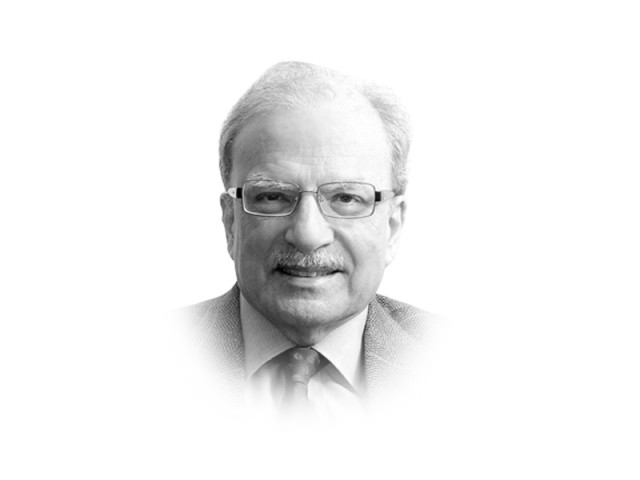Pakistan facing two quadrilaterals
In the reshaped — and reshaping — world, bilateralism may lose significance to ‘multi-nationalism’.

The writer is a former caretaker finance minister and served as vice-president at the World Bank
The new Pakistani government, headed by Prime Minister Nawaz Sharif, is in the process of a developing a new foreign policy orientation. This is likely to move the country away from the concerns and fears that guided it in the past towards an approach that places greater emphasis on economic rewards. The assumption is that while Pakistan makes this important transition, it will not be distracted by developments over which Islamabad has no control. That may not be a valid assumption on which to base the needed rethink on external affairs.
The past process was ‘India centric’ in the sense that Pakistan tried, sometimes with desperation, to balance India’s growing military might. That approach proved costly. In a 2007 report I wrote for the United States Institute of Peace, I calculated the cost to Pakistan of the running dispute with India over Kashmir and other issues. I estimated that the Kashmir dispute alone had cost Pakistan 2.25 to 3.2 per cent a year of foregone growth in GDP. Compounded over a period of six decades, this suggests the magnitude of the colossal damage Pakistan has done to its economy by following this particular quarrel with India. This estimate used purely economic factors; it did not take into account the undeniable fact that some of the cost of this approach towards India contributed to the rise of extremism in the country. That, too, has resulted in serious economic losses.
I will argue here that Islamabad should factor in multi-nationalism into the making of public policy. It should look in particular at the development of two ‘quadrilateral’ arrangements right on its borders. Its focus is on maximising economic returns for the country from external relationships. It should cultivate these in the context of the development of essentially informal multi-national groupings.
That said, the pursuit of bilateralism as an approach in external affairs continued in the first few months of the new regime in Islamabad. Restoration of a balance of sorts with the United States received a lot of attention. It was motivated largely by the need to obtain immediate relief for the unsustainable pressure on external accounts. America could help — and it did — by releasing money from the Coalition Support Fund, the arrangement established for compensating Pakistan for the use of its road network for supplying the American and Nato troops operating in Afghanistan. Islamabad also pressed Washington to make availbale the financial resources promised under the Kerry-Lugar Act for priority sectors and projects. This act was signed into law by the newly elected President Barack Obama in October 2009. It promised a continuous flow of American assistance into Pakistan at the annual rate of $1.5 billion over a period of five years, with the expectation that the period of financial support could be extended beyond 2014. Saudi Arabia was approached — again with success — to provide $1.5 billion contribution to the resurrected Pakistan Development Fund. The Fund was established by the Asif Ali Zardari government in 2009 in the expectation that the West would support Pakistan as it finally began to move towards the creation of a democratic political order. China is working with Pakistan on a number of multi-billion infrastructure projects. These include several large dams on the Indus River, called the ‘Indus Cascade’ programme by the World Bank. China will also provide financial support and technical advice for the development of what is described by Islamabad and Beijing as the China-Pakistan Economic Corridor. Large amounts of Beijing’s input have been talked about. Prime Minister Sharif has reached out to New Delhi to put relations with India on economic grounds. There is no longer talk in Islamabad about India posing an existential threat to Pakistan. It is expected in Islamabad that once India elects a new Lok Sabha, the lower house of the Indian parliament, in May 2014 and installs a new government in New Delhi, the pace of improvement in relations may pick up.
However, by focusing on bilateralism, policymakers in Pakistan may be losing sight of the fact that in a rapidly reordering world, what may matter more is multi-nationalism. The obvious examples of this are the two quadrilateral relations taking shape around Pakistan’s borders. The first of these involve the United States, China, India and Japan; the second, the United States, China, Japan and India. Whatever form these relationship take will have enormous consequences for Pakistan.
Published in The Express Tribune, March 31st, 2014.
Like Opinion & Editorial on Facebook, follow @ETOpEd on Twitter to receive all updates on all our daily pieces.















COMMENTS
Comments are moderated and generally will be posted if they are on-topic and not abusive.
For more information, please see our Comments FAQ